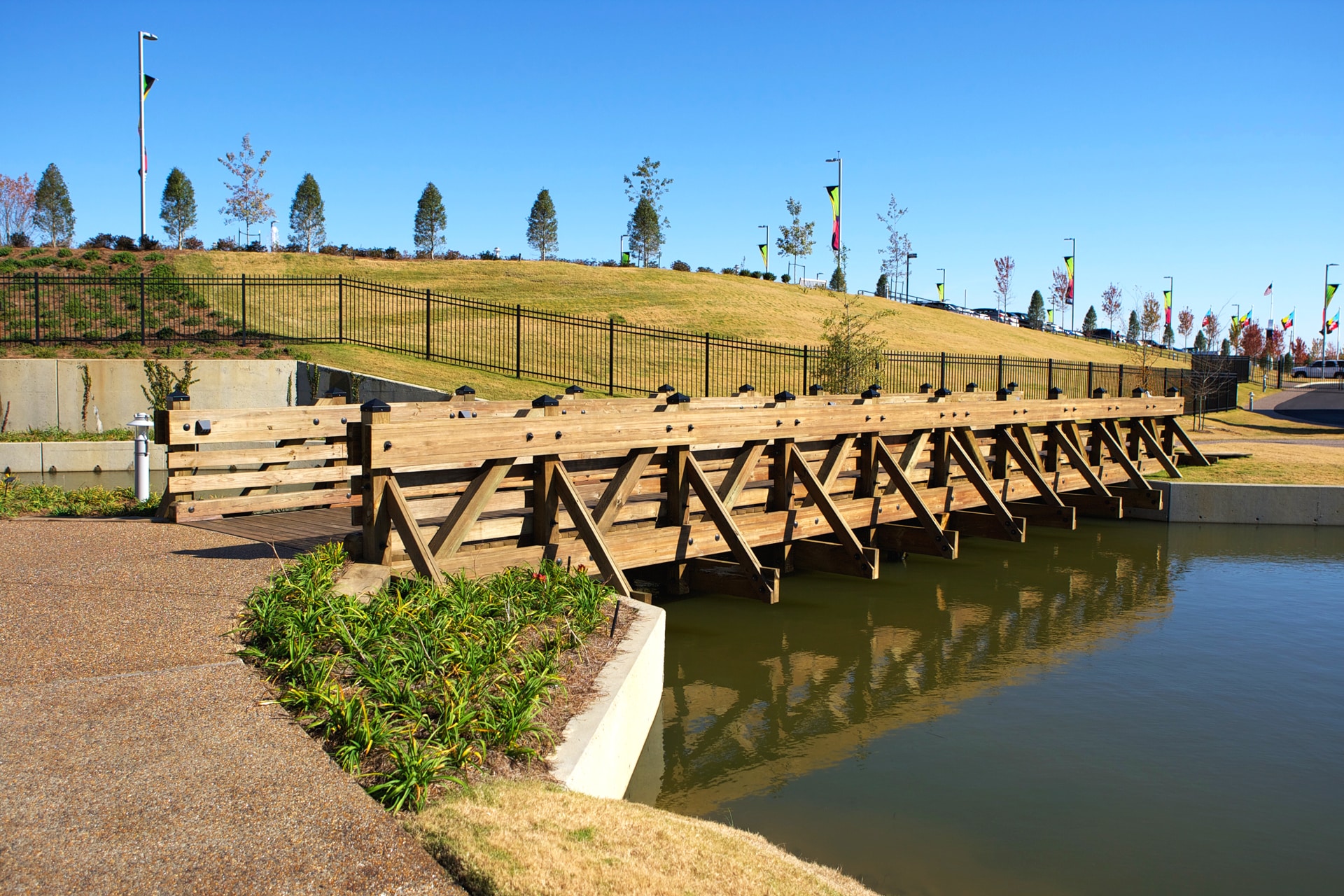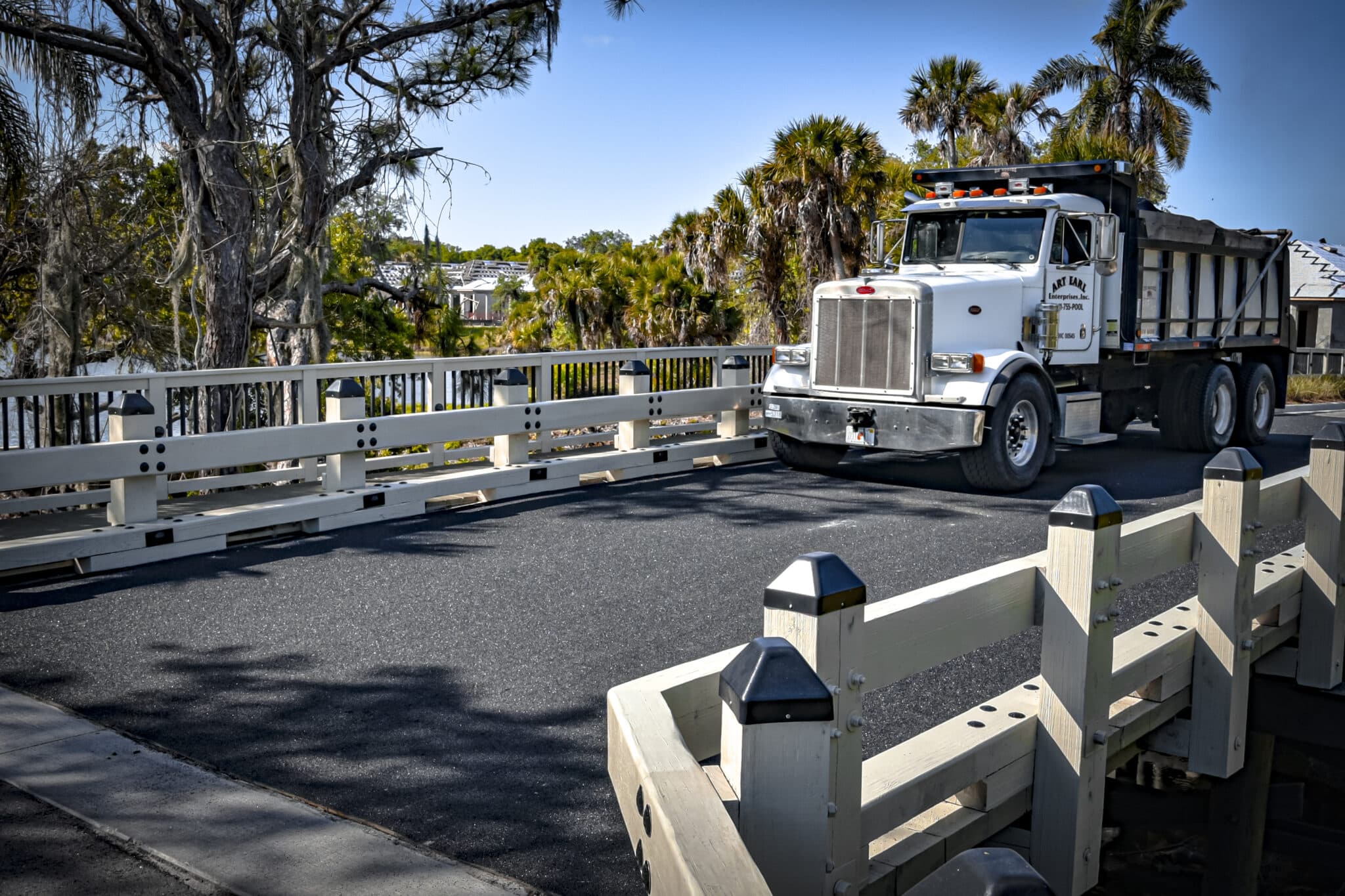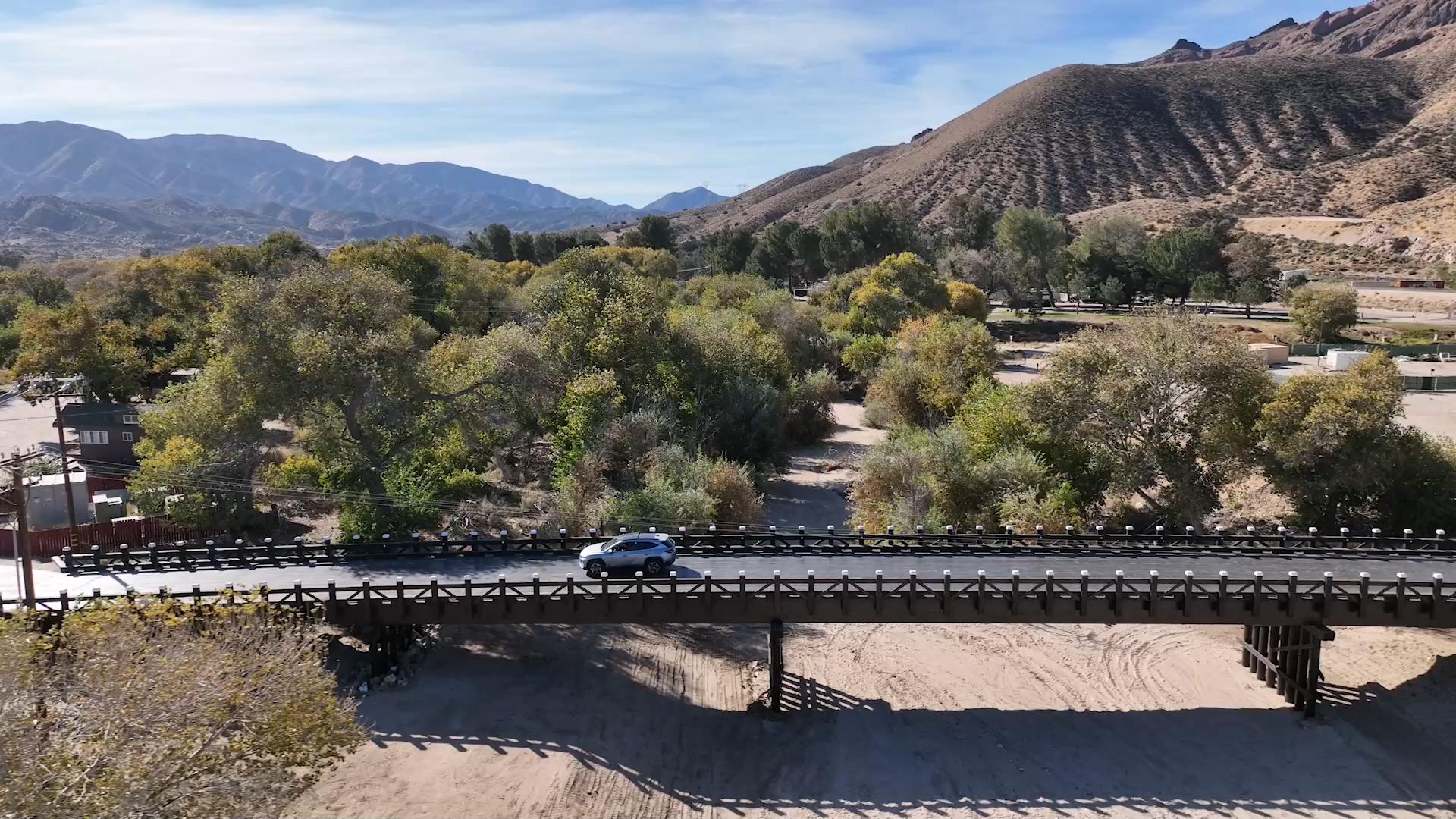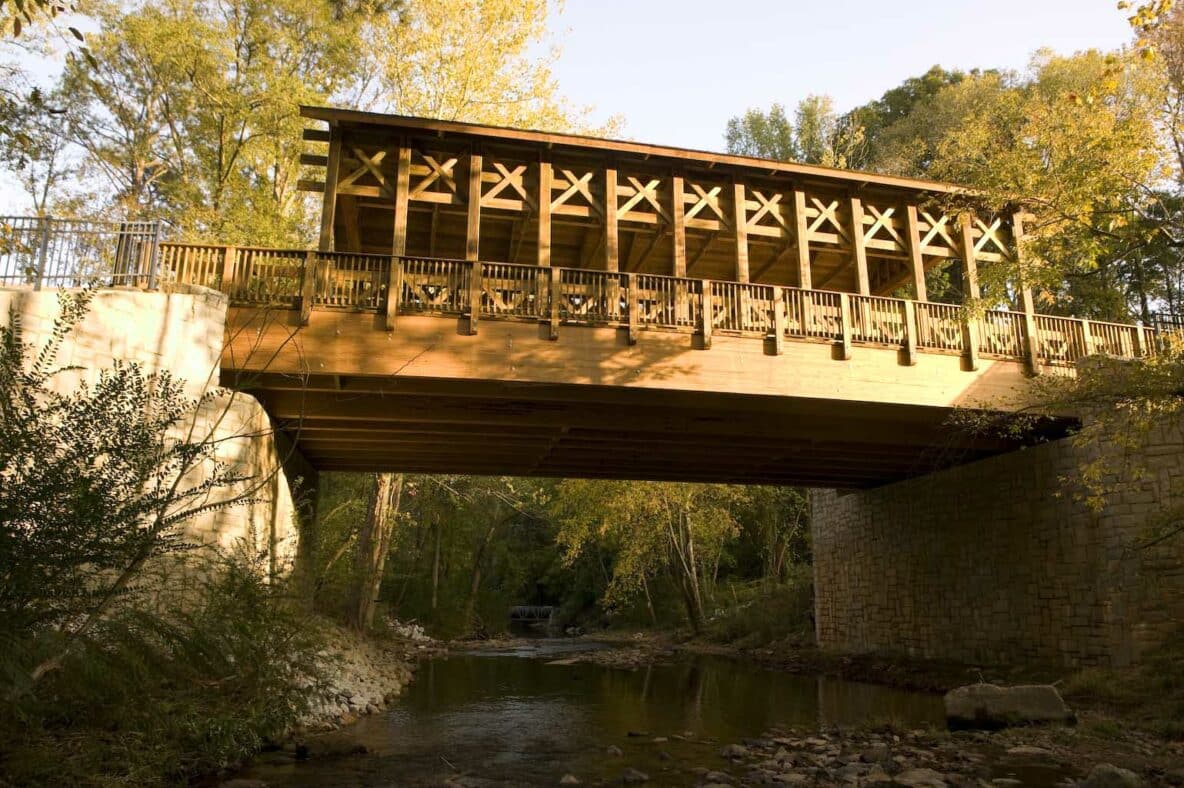
The Longevity & benefits of timber bridges
Timber bridges, often overlooked in modern infrastructure, present a highly viable and sustainable option for bridge construction. York Bridge Concepts specializes in creating timber bridges that not only blend harmoniously with natural landscapes but also boast impressive durability and longevity. Contrary to common misconceptions, timber bridges can last 75 years or more with proper design and maintenance, making them a smart investment for various applications.
75+
YEAR DESIGN LIFESPAN
60%
REDUCTION IN GHG
When using wood instead of steel or concrete*
The Historical & Modern Appeal Of Timber Bridges
Historical Context
One of the foremost reasons mass timber is gaining traction in bridge construction is its significantly lower environmental impact compared to conventional materials. Timber is a renewable resource, sourced from sustainably managed forests that sequester carbon dioxide—a crucial advantage in combating climate change. Unlike concrete and steel, which have substantial carbon footprints due to their energy-intensive manufacturing processes, mass timber production requires less energy and generates fewer greenhouse gas emissions. Moreover, the carbon stored in timber remains sequestered throughout its lifecycle, making it a carbon-negative material when responsibly sourced and managed.
Modern Developments
Today, advances in wood preservation techniques and engineering have significantly enhanced the performance and lifespan of timber bridges. The introduction of pressure-treated wood and protective coatings has made it possible for timber bridges to withstand environmental stressors and heavy use.

Lifespan & Durability Of Timber Bridges
York Bridge Concepts' Commitment
York Bridge Concepts designs timber bridges with a lifespan of over 75 years. This commitment to longevity is achieved through meticulous design, quality materials, and advanced preservation techniques.
USDA Forest Service Study Insights
A comprehensive study by the USDA Forest Service evaluated over 100 timber bridge superstructures across the United States. The findings revealed that timber, when properly treated and maintained, is a durable option for bridge construction, capable of lasting 70 years or more.

Advantages of Timber Bridges
Environmental Sustainability
Timber is a renewable resource, making timber bridges an environmentally friendly choice. The carbon footprint of timber bridge construction is lower compared to steel or concrete bridges, contributing to sustainability goals.
Aesthetic Integration
Timber bridges naturally blend with their surroundings, enhancing the aesthetic appeal of parks, rural areas, and other natural settings. This integration can be particularly beneficial in environmentally sensitive areas where visual impact is a concern.
Cost-Effectiveness
The initial cost of constructing a timber bridge is often lower than that of steel or concrete alternatives. Additionally, the ease of repair and maintenance for timber bridges contributes to long-term cost savings. There is no need for special equipment and skilled labor, thus saving time and money.

Addressing the common misconceptions about timber bridges
Durability Concerns
A prevalent misconception is that timber bridges are less durable than their steel or concrete counterparts. However, studies and real-world examples have shown that with proper maintenance, timber bridges can achieve similar lifespans.
Maintenance Requirements
While timber bridges do require regular inspection and maintenance, same as concrete & steel, modern preservation techniques have significantly reduced the frequency and extent of these requirements. Preventive maintenance and timely repairs ensure the longevity of timber structures.

Case Studies & Real World Applications
Successful Implementations
Numerous examples of successful timber bridge projects demonstrate the practical benefits and longevity of these structures. From pedestrian walkways in parks to vehicular bridges, timber bridges have proven their worth across various applications.
York Bridge Concepts' Portfolio
York Bridge Concepts has an extensive portfolio of timber bridge projects, each showcasing the versatility and durability of timber as a construction material. These projects serve as testimonials to the efficacy of timber bridges in diverse environments.

Blending tradition & modern innovation
Timber bridges represent a blend of tradition and modern innovation, offering a sustainable, aesthetically pleasing, and durable solution for bridge construction. York Bridge Concepts' commitment to quality and longevity ensures that their timber bridges stand the test of time, providing reliable infrastructure for generations. As demonstrated by the USDA Forest Service study and countless real-world applications, timber bridges are a wise investment, capable of meeting the demands of modern transportation and environmental sustainability.
*Use of structural wood in commercial buildings reduces greenhouse gas emissions, Oregon State University, 2017.

